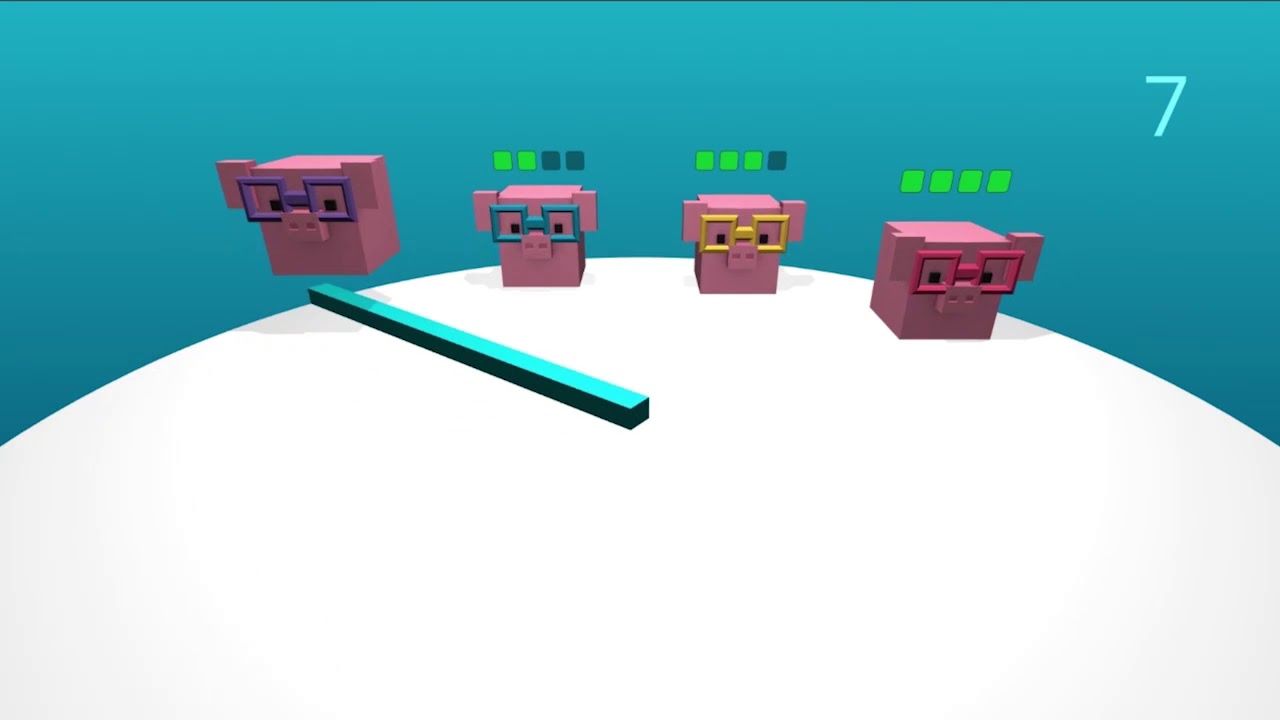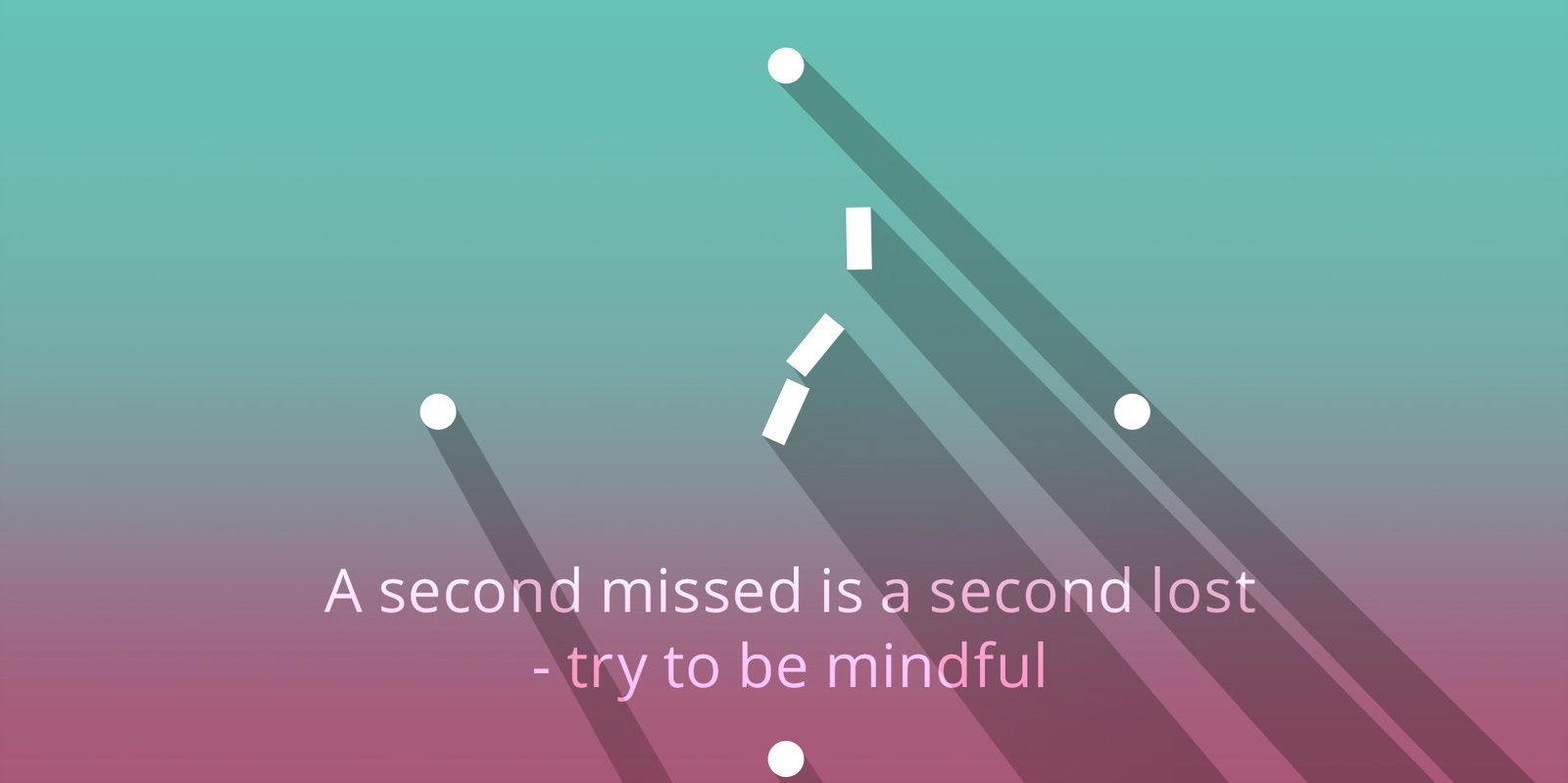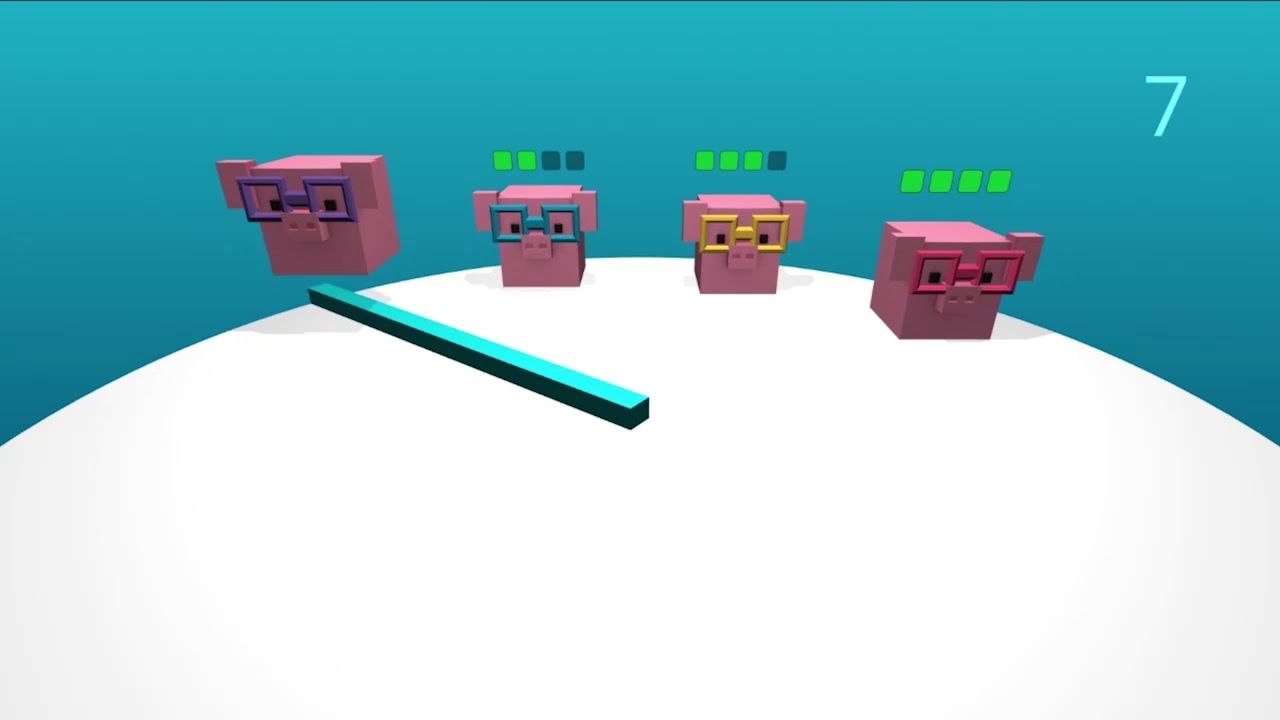Clock Simulator is a game that dares to imagine a world where you, a human being, are a clock. It's a video game scenario that exactly no one was asking for but even more bizarrely it works. Kool2Play's Clock Simulator, which originally released on mobile and PC but has now come to Nintendo Switch, is exactly what the title promises. It's a collection of minigames all with a very simple concept; every second a button must be pressed.
Clock Simulator will not appeal to everyone. It's certainly not a game that is built for longevity either. Clock Simulator feels more at home on a phone screen than a TV one. Yet there's something appealing about Clock Simulator all the same and it's much more than a gag game.
Related: Every Game Coming Out in 2019 - A Complete List
It is admittedly impossible to make Clock Simulator sound exciting. Though the visuals change throughout the various game modes, the gameplay does not. With only slight visual hints, Clock Simulator requires any of the face buttons to pressed once every second, on the second in order to be successful. Certain modes will require specific buttons to be pressed due to what is happening on-screen but the one second time limit never changes. Every second a button should be pressed. It doesn't sound fun and it doesn't even sound like much of a game but against all odds it ends up being both.
When you're not in rhythm and a button isn't being pressed every second Clock Simulator is frustrating. This is especially true depending on the game mode. In certain modes like "Test Your Skill" which gives players five lives, ill-timed presses won't just result in the usual loss of score but repeated errors can lead to a game over. When Clock Simulator's rhythm is tuned into it really creates an almost trance-like quality. Clock Simulator shouldn't be so satisfying. The game is nothing more than counting but there's something deeply gratifying of hitting the exact mark.
It's all down to the audio and visuals of Clock Simulator. The game is definitely best played in the Switch's handheld mode with headphones on because that allows the full effect of what developer/publisher Kool2Play has done to be felt. A lot of the modes in Clock Simulator do involve a ticking clock but the colors and audio cues are manipulated in such a way that is very hypnotic. A successful run in Clock Simulator is similar to a good game of Tetris where time becomes a bit of meaningless construct, even if Clock Simulator is all about time, and the only goal is building a high score.
The real issue is that it's not a totally sustainable experience. Tetris can be played for hours but Clock Simulator doesn't have a lasting an effect. After about an hour the novelty is lost. Clock Simulator is built for quick sessions and it's clear that Clock Simulator was originally created for mobile devices, and ported to Switch.
Clock Simulator is priced a few dollars higher on Switch and that difference comes down to Kool2Play having added two multiplayer modes. Much like the base game the multiplayer is bizarre but absorbing. Neither mode is too exciting and the truth is that Clock Simulator is not a party game. Playing Clock Simulator against an opponent is a silent and intense experience, and more difficult and challengingas opposed to the computer but not necessarily better.
The Nintendo Switch version of Clock Simulator isn't the definitive version of the game. It's interesting to have Clock Simulator on Switch and it certainly makes sense there but the core experience is just as gratifying (and cheaper) on PC or mobile. Clock Simulator isn't a deep game but for a budget price and the experience it can create it's worth a shot. It's just best to not expect to spend too much time on it.
More: Nintendo Officially Confirms Bowsette CAN'T Be Canon
Clock Simulator release January 10, 2019 on Nintendo Switch for $3.99. It is available now on Android, iOS and Steam for $0.99. Screen Rant was provided a Nintendo Switch copy for review.



